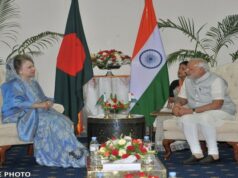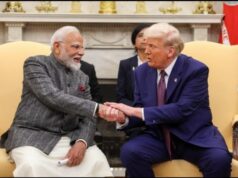Former diplomat Bhaswati Mukherjee, who was Chief of Staff to the United Nations Human Rights Commissioner offers her perspective on Tajikistan’s recent move to abolish the hijab, a significant development in a country with a 90% Muslim population. Mukherjee delves into the historical and cultural context, noting that Tajikistan, with its deeply entrenched tribal customs, has never been particularly extremist or fundamentalist. The hijab, she argues, doesn’t fit into the traditional attire of Tajik women, who have their own distinctive headgear.
Mukherjee emphasizes the importance of women’s freedom to choose their dress while highlighting the need for education about the significance of different attires. She shares an anecdote about a colleague who faced severe consequences for inappropriate dressing in conservative Libya, underlining the importance of understanding cultural contexts for safety.
She expresses concern over the government’s decision to ban the hijab through diktat, advocating instead for education that would allow women to make informed choices. Mukherjee reflects on her own experiences in Muslim countries, where she respects local customs regarding dress.
The conversation also touches on the broader issue of state intervention in women’s rights. Mukherjee contrasts Tajikistan’s approach with the oppressive laws in Taliban-controlled Afghanistan, where women are denied basic freedoms and education. She acknowledges that while the lack of democracy is a concern, measures that liberate women from regressive practices should be supported.
Ultimately, Mukherjee suggests that if Tajik women are educated about the historical context and choose not to wear the hijab, it is a positive development. However, the true test will be whether the women themselves are content with this change. Their subtle expressions of discontent, if any, will reveal the impact of this policy on their lives. Mukherjee’s insights provide a comprehensive understanding of the complexities involved in the intersection of tradition, choice, and state influence on women’s rights and freedoms.
Neelanjana Banerjee is a Broadcast Media Specialist with 23 years of cross-media experience in designing and producing content for television, radio and online media.
Having held a wide range of roles in various aspects of electronic media, she is a multifaceted professional and has an in-depth and hands on experience in broadcast
content, programming, media production, channel / product launch, TV and
radio skills training and online content.
Neelanjana was awarded the Chevening Gurukul fellowship in Leadership & Excellence from King's College, London in 2016.




